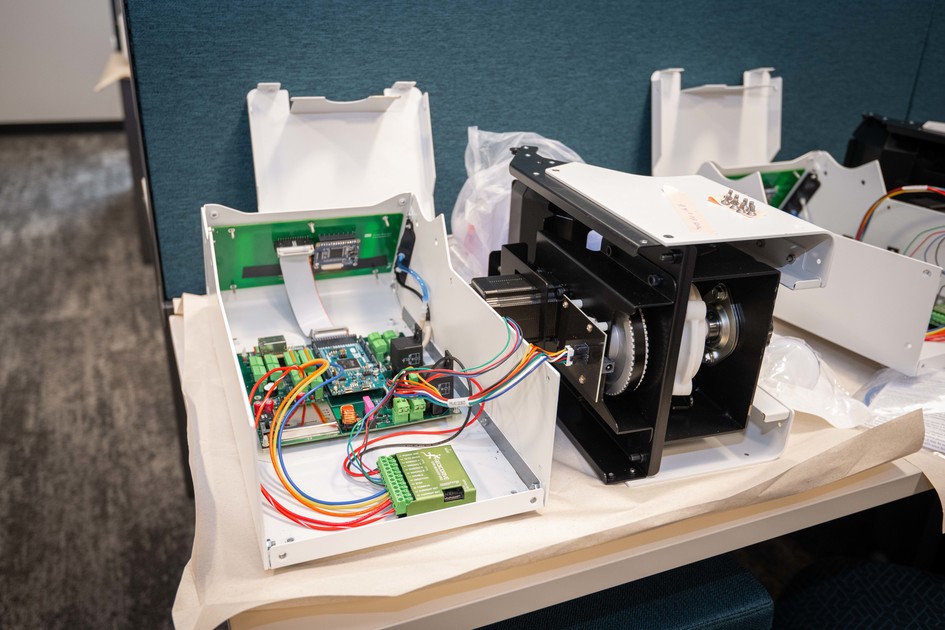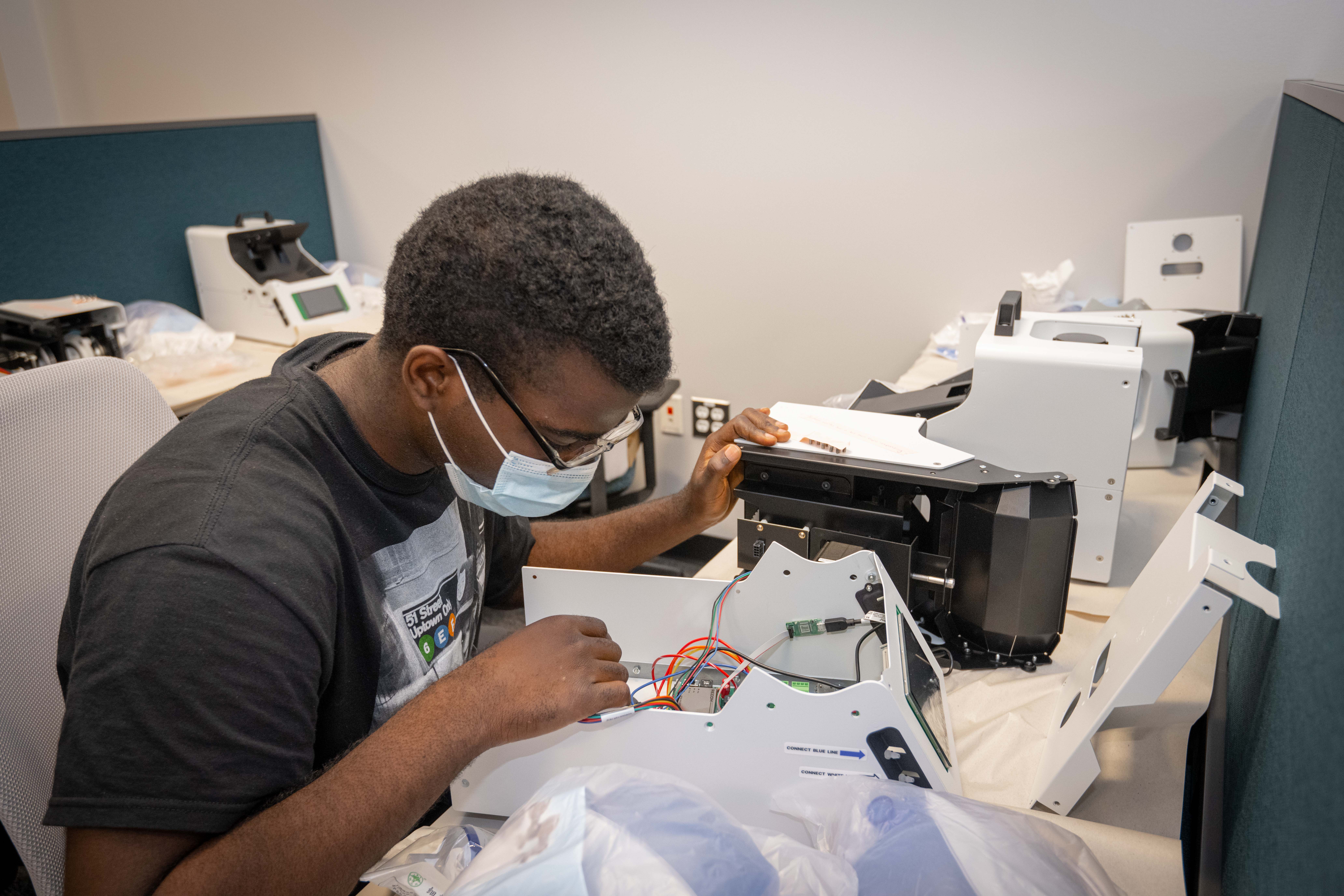“Our shift in mindset enabled us to innovate lifesaving devices that addressed a real-time need, while shining some light on how we can do things differently to prepare better for future emergencies,” says Fischer.
From there, in light of the global spread of the pandemic, and as part of the university’s WPI/Africa COVID-19 Pandemic Engineering Program, one fully assembled ventilator and one unassembled ventilator kit were sent to 20 academic institutions in Africa where they will soon be studied, reverse engineered, and used to co-create new ventilators for potential use in hospitals in that region of the world. WPI is also providing online ZOOM sessions to train project teams in Africa in ventilator design and assembly, as well as in testing and automation of the ventilators with control electronics.
Meeting the Need for Agile Innovation and Collaboration
Fisher’s ventilator work was supported through the Massachusetts Manufacturing Emergency Response Team (MERT), an emergency effort created by the state to boost production of personal protective equipment and other critical materials needed to respond to the COVID-19 pandemic. As part of this initiative, WPI received additional support from the Massachusetts Technology Collaborative (MassTech), the organization that managed MERT, to expand its critical work around low-cost mechanical ventilators. The new state funding enabled further design innovations for ventilators that were then assembled by a team of WPI faculty, staff, and students. Boston Engineering contributed to the vital open-source ventilator control electronics and software needed to operate these devices.
“WPI has been a trusted partner on the work of the MERT and a natural contributor for the work on ventilators, given its history as an innovator in healthcare technology and engineering,” says Carolyn Kirk, Executive Director of Westborough-based MassTech. “The inclusion of Boston Engineering highlights how this project harnesses the talent and know-how that exist at all levels of our Massachusetts manufacturing and innovation ecosystems, helping drive critical hands-on learning opportunities ventilator kit that are creating real world impact.”
Supporting an International Need
 As highlighted by the Washington Post in April 2020, fewer than 2,000 ventilators existed across 41 African countries, making the increase of the supply—as well as the skills needed to repair and maintain the devices—critical to managing the impact of the pandemic.
As highlighted by the Washington Post in April 2020, fewer than 2,000 ventilators existed across 41 African countries, making the increase of the supply—as well as the skills needed to repair and maintain the devices—critical to managing the impact of the pandemic.“MERT provided us the support we needed to expand our project in Massachusetts, and further develop this new low-cost, scalable design. From this we recognized the opportunity to share the work with others and incorporate it in training programs that address medical device shortage emergency response here and in Africa,” says Bogdan Vernescu, vice provost for research at WPI.
“Boston Engineering is proud to contribute on such a worthy cause with MTC and WPI in making an impact in parts of the world that can benefit from increased product innovation skills and equipment that can save lives,” says Mark Smithers, Chief Technology Officer at Boston Engineering.
Workforce Development
Under the guidance of two WPI graduate students, several area high school students worked on the ventilators this summer and early fall, testing and shipping both the completed devices and a kits of parts provided by Boston Engineering. The work provided the students with hands-on manufacturing experience as well as new insights into supply chain issues and global collaborations.

Benedict Antwi, a junior at Worcester Technical High School says, “This will contribute greatly in terms of education—not just mine, but many others’. I’m proud to be part of this project.”
Building on Success
Just as the pandemic has highlighted the importance of a fast turnaround for emergency sources of new products and equipment, it has also underscored the need for collaborative spaces that allow for a quick pivot. Research and Development facilities such as PracticePoint at WPI, which served as a test area for the ventilator work, are set up and outfitted for designing, prototyping, and testing devices for companies that have limited access to larger facilities. These incubator spaces match academics with businesses to help bring a product to market—especially important when the need is urgent.
“These unique models are truly centers of excellence that allow for an exchange of ideas and quick action on shared challenges,” says Fischer. “The ventilator project is just one example of coming together to solve a critical problem. Future projects will not only better prepare us for emergency response but contribute to workforce and economic development across the state.”
Photography: Matthew Burgos






